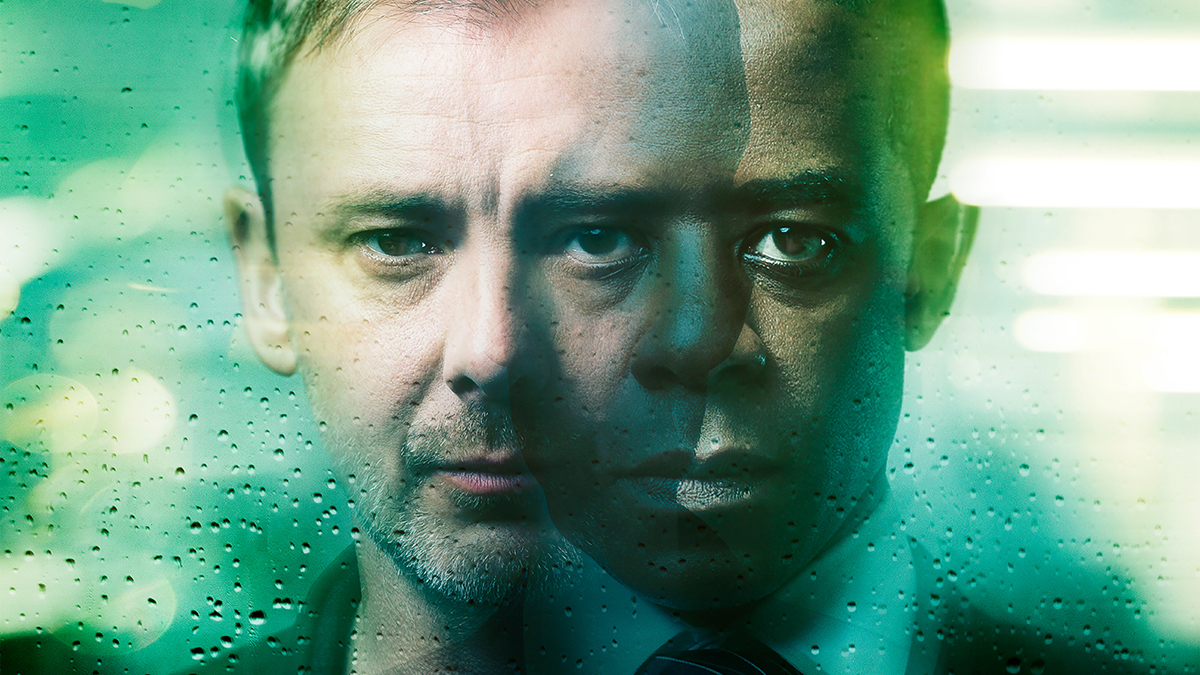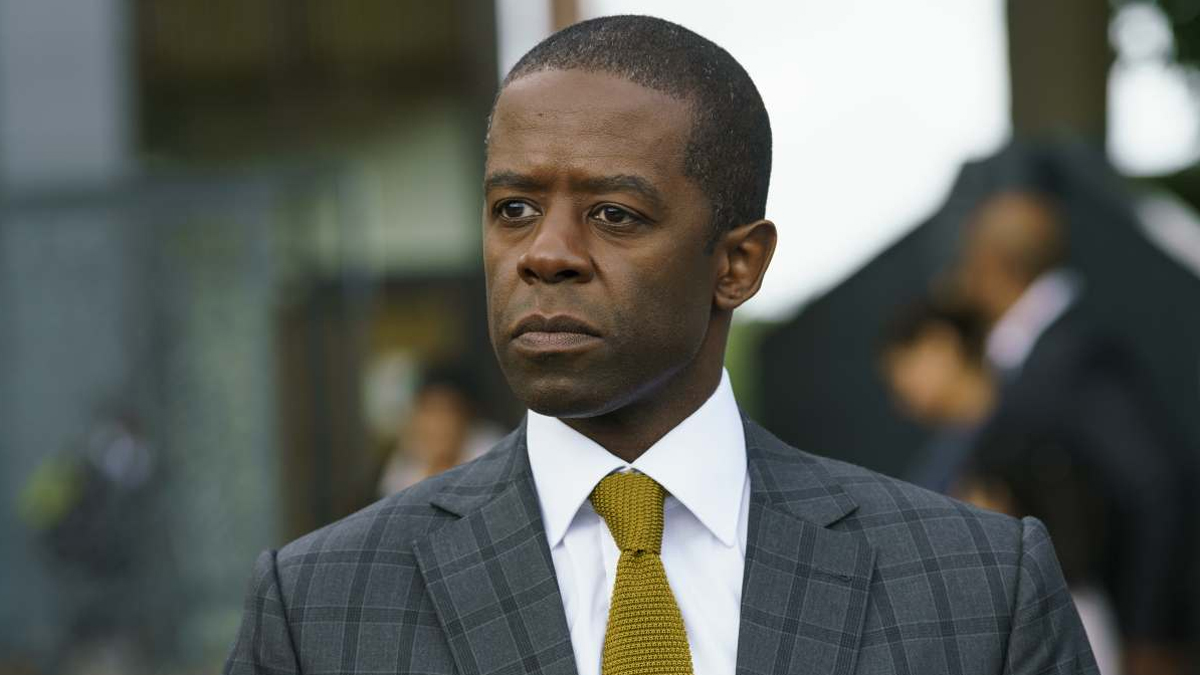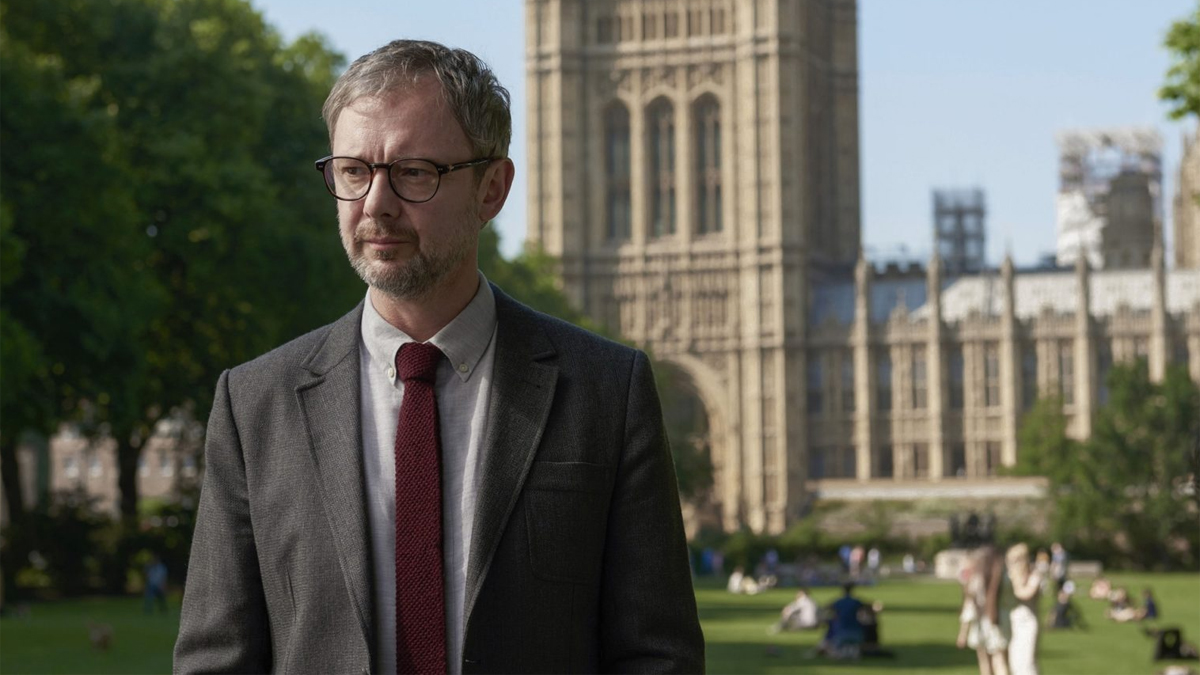John Simm interview: ITV’s Trauma, grief, injustice
We spoke with actor John Simm about ITV’s three-part thriller, Trauma, which concluded last night…
This Monday on ITV and the BBC, you could barely move for John Simm dramas. BBC Two had the launch of Collateral, a four-part David Hare political thriller in which Simm plays MP David Mars (as in, life on). There was even bonus Simm to be had for the eagle-eyed, as the actor’s real-life daughter Molly played his fictional child Elfie in Collateral.
ITV had the first of three consecutive nights of Trauma, a thriller from Doctor Foster writer Mike Bartlett. In it, Simm played Dan Bowker, the bereaved parent of a teenage stabbing victim. Dan’s unshakeable belief that the surgeon who operated on his son is lying about what really happened leads him down a dark path.
We chatted to Simm about playing Dan, Trauma’s themes and his return to Doctor Who last year…
Would you describe Trauma’s story essentially as about grief or blame, or obsession?
I think it’s all those things. Obsession would certainly describe my character, Dan. Devastation, the despair you go through when such a massive event happens in your life and trying to find who to blame. You put your trust in these professionals, and they tell you everything’s going to be okay, which happens to Dan when he goes into the hospital, and it seems like a run-of-the-mill, everyday thing that they deal with and then suddenly, his son’s dead. So, who is to blame for that?
Dan becomes obsessed with the idea that the surgeon is to blame, then?
He is very tenacious and he won’t let it go. He thinks he’s been lied to and he does go to some extreme lengths. He does some extreme things. He’s driven to do these awful things because he’s convinced that he’s right, he’s convinced he’s being lied to.
It occurred to me in the first episode that Dan would make a good detective. He’s great at spotting detail, sniffing out when people are lying. Trauma in a way, is it a kind of detective series in that he’s trying to get to what he sees as the truth of that injustice?
I guess it is, I hadn’t thought of that but I think he would make a good detective, and he could probably do with the work. I guess it is. He feels like a nobody, the two protagonists in this are on such a different social scale, he feels very very much below Jon Allerton on the social scale. He takes it up himself against everything that’s happening, his life is dissolving, his marriage is unravelling. It seems like he’s being overcome with despair and you think as a viewer, of course I understand that he must be heartbroken and devastated, but surely, he’s barking up the wrong tree here. Why isn’t he blaming the kid that stabbed him?
But he’s tenacious and he sees something in Jon’s eyes in episode one, when he finds himself in the operating theatre and John’s holding his son’s heart in his hand, and going back to the trust we have in professionals and institutions failing us, he sees something in his eyes and it looks to him like panic. He just can’t let it go. It’s a three-parter so I don’t want to give away the ending, but he does get vindicated really.

Why, in your mind, doesn’t Dan pursue Alex’s attacker? Why do you think he turns his attention where he does?
I thought about that when I was doing it. He does say, when he’s stood looking at the place where his son was stabbed I think someone says to him ‘did he die here?’ and he says ‘no’. So it wasn’t the fact that he was attacked, it was the fact that he was alive and while he was alive, the surgeon assured him that he was going to be fine, the way he spoke to him, that calming sort of manner they use when they’re trying to calm people down in hospitals, that voice. I think he takes umbrage with the fact that he did that to him and yet his son’s dead. ‘He’s going to be fine. We get this all the time. Don’t worry, he’s in safe hands’, all that and then suddenly to have the rug pulled from under his feet is a real shock.
He definitely blames the surgeon, because that’s where he died. He says at one point, ‘you were the last person to see him alive. I feel like you play a big part in his life’, but I think it all stems from that sense of injustice. Like you say, he could be a good detective because he’s pretty tenacious and he will not let it go.
And you say he’s prepared to go to some extreme lengths in order to get that justice for his son?
Yeah, he becomes desperate and he wants Adrian’s character to really feel like what it feels like to be him. I can’t really give much more away!
What Dan’s story is particularly good at evoking in episode one is that sense of powerlessness that we all have. We’re putting our loved ones’ lives into the hands of strangers, albeit highly qualified strangers.
Absolutely. And he goes through all the proper channels. He tries to complain, he puts it to the hospital, he tries everything, but he just keeps getting the door slammed in his face and he looks like he’s never going to find out. He kind of unravels and loses his mind and does something really stupid. I think maybe the audience would switch allegiance between the two characters throughout the piece. Jon is not a bad person, he’s a brilliant surgeon and a brilliant father but everything is not as it seems and it’s about the little lies that we tell each other and ourselves really as well.

You mention the different social status between the two men. How important is Dan’s sense of class injustice? He says in episode one, “I just wasn’t born to the right people and neither was my son”.
There’s self-pity in there as well. He’s frustrated. At another point he says something about this being different if this were David Beckham’s son, so he really does feel like a nobody and not only that, like a nobody that’s losing his mind. He loses his son and because of his reaction to it, because of what he does, he starts to lose his wife as well, so he’s losing everything. There’s a great sense of injustice in there.
You mentioned the audience switching allegiance. Are you expecting viewers to pick sides as this goes along then?
I don’t know, I’m not sure actually. I guess so, I guess that’s what’s clever about Mike Bartlett’s writing. You don’t know who’s in the wrong. It doesn’t seem like anybody is, but something has gone wrong and he doesn’t let you find out very easily and that’s how it turns into a pretty fast-paced thriller towards the end.
I was speaking to Mike yesterday about Trauma and we talked about the idea that there might be something specific in the way that men respond to grief, shown through Dan’s character. Mike said he’d read Robert Webb’s book recently, How To Be A Boy, about the way that men learn how to turn emotions into anger and action. Does that ring true for you with the character?
That’s so strange. I just read that book! I finished it yesterday, it’s not something I usually would have read but I got a lot of recommendations about it and yeah, it’s about how men are supposed to behave. It’s a very good point. I never thought about that, I never thought that because he’s male that’s how he’s supposed to behave. That’s a new one on me but I’ll think about that. I think that’s pretty relevant.
Mike and I obviously also talked about his brilliant Doctor Who episode [Knock Knock] he did last series, he told me he’s a massive fan and remembered that when he sat down to have lunch with you before Trauma, he had to force himself to wait a decent stretch of time before he let himself bring up how brilliant you were in The End Of Time?
[Laughs.]
Do you remember that?
I don’t remember anything like that! I was exactly the same so I didn’t gush all over him about King Charles III. I think we both sat there in silence. I had no idea that he was a Doctor Who fan, but I loved his episode. His episode was great.
Every year, the writers on our site vote for their favourite TV episodes of the year and top of the list this year was The Doctor Falls the series ten finale.
Oh, that’s good.
What memories you have of filming that with Peter and Michelle and Pearl?
I just remember it was a lot of fun, it was great. I particularly loved the one where I was dressed up as Razor. That was fun to do, to look completely different. It was great fun and a real honour as well to be able to work with Peter. I’ve been through two Doctors in my time, and not a lot of people can say that! Both terrific actors as well.
Nothing more particular from that?
Particular memories… I can’t think of one specific. It’s just a blessing to do.

Finally then, what can you tell us about your other big TV drama this year, Collateral?
That is a political thriller, David Hare, directed by S.J. Clarkson, who I worked with on Life On Mars and it was a great cast, Carey Mulligan, Nicola Walker, Billie Piper… it’s a state-of-the-nation thriller. It’s fantastic. It’s a four-parter, really exciting, races along, it’s beautifully written, obviously because it’s David Hare so I’ve been very lucky to work with two fabulous playwrights on two brilliant TV thrillers this year.
And we’re lucky enough to watch them, John Simm, thank you very much!
